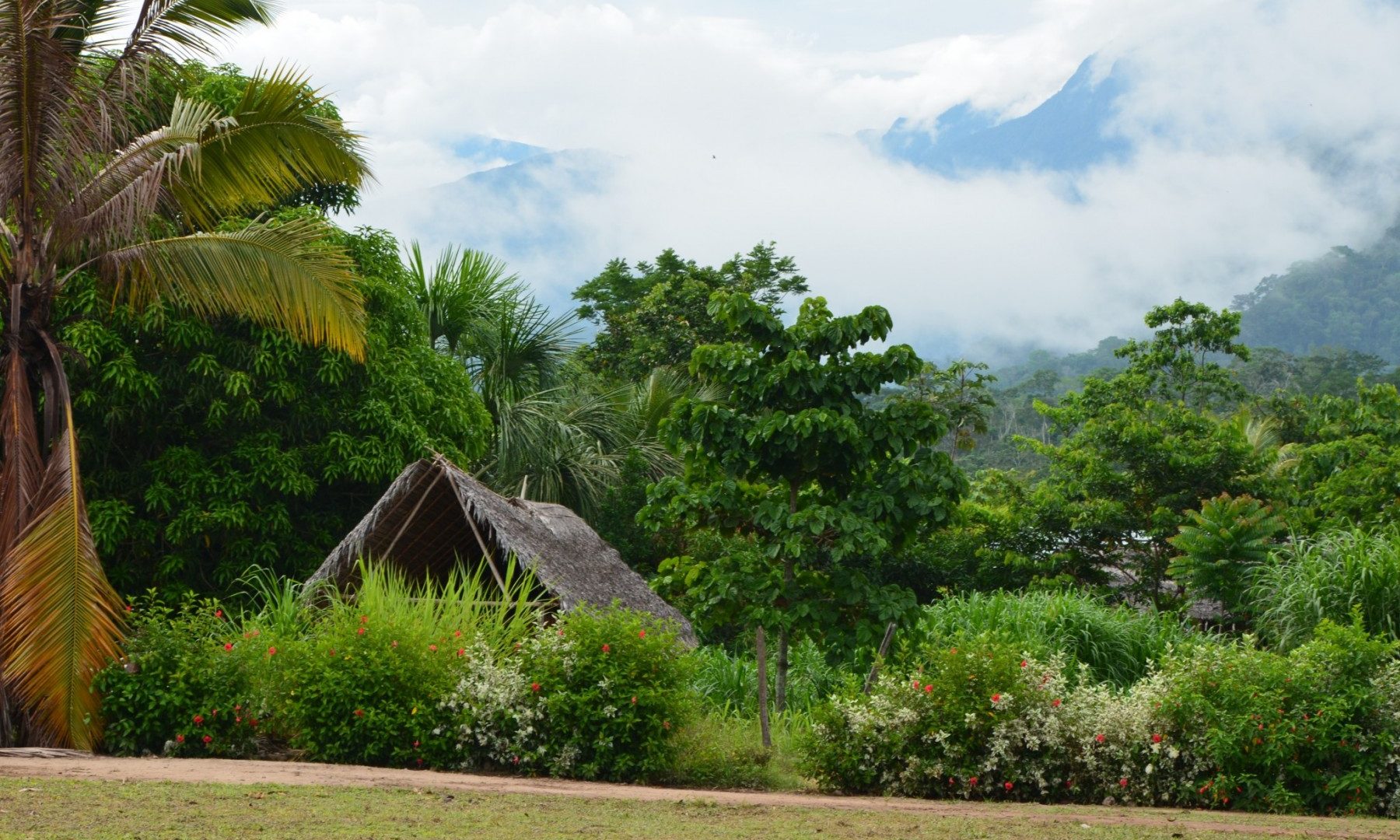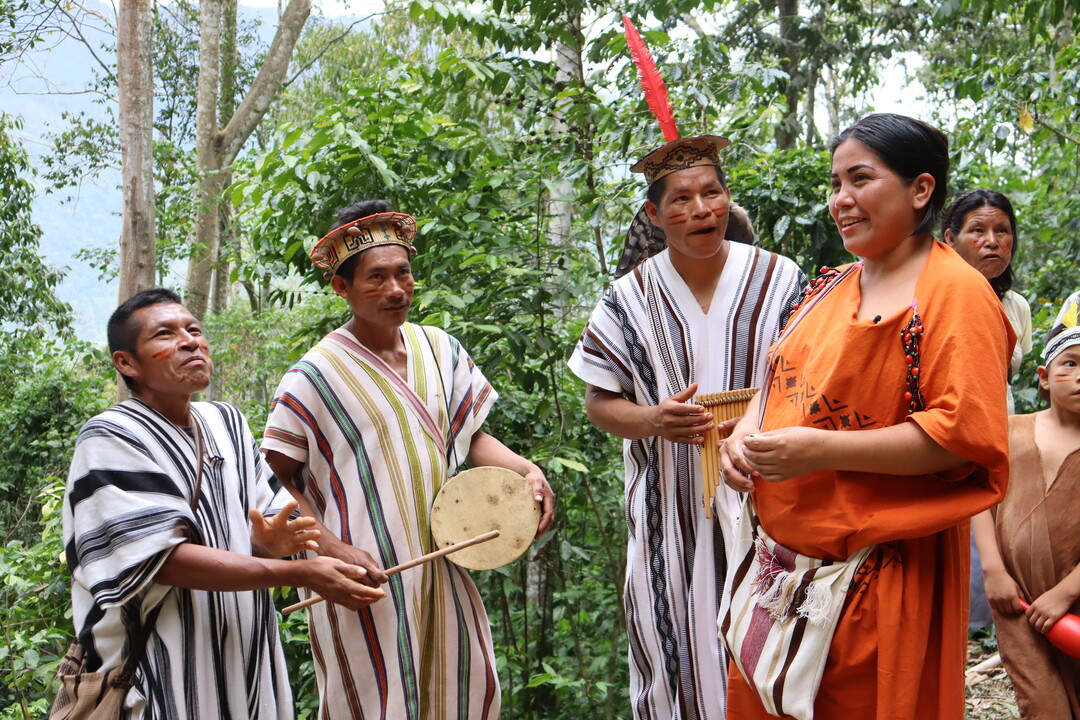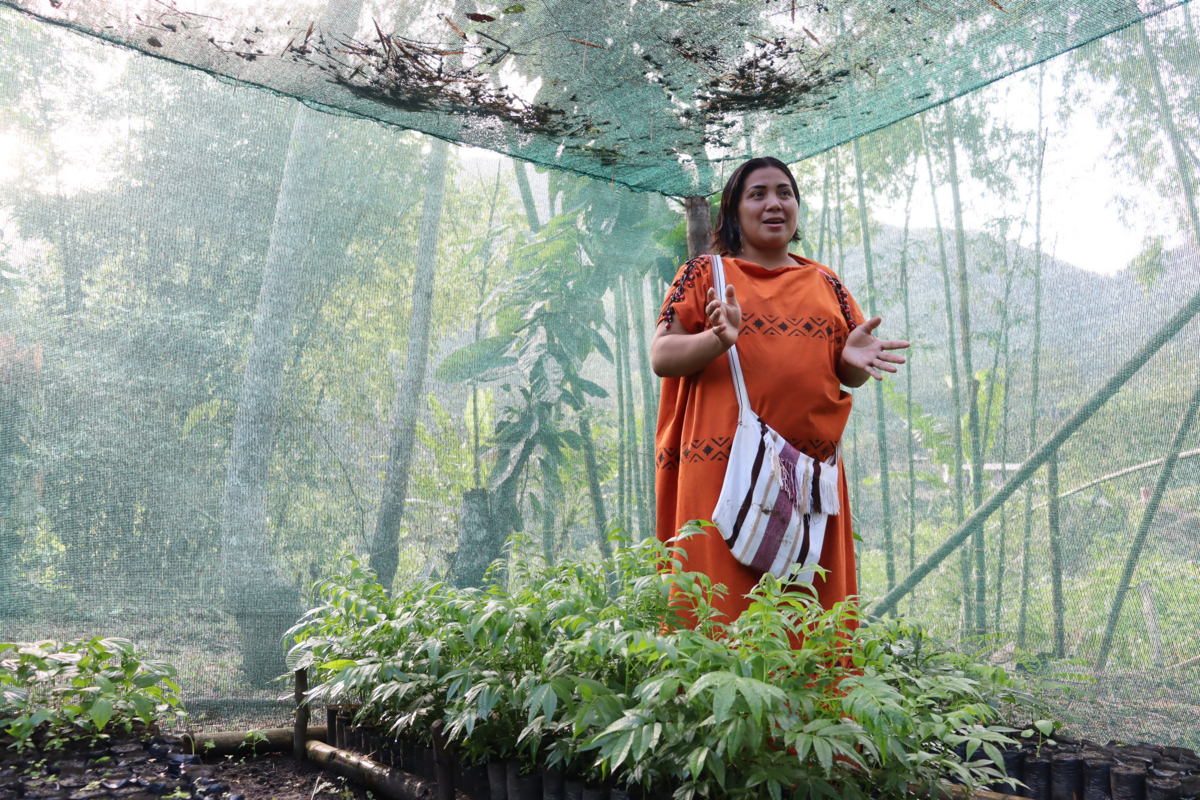
Can cash for people living in rainforests halt climate change?
Just six months ago, we launched the world’s first basic income pilot for people who live in the rainforest. Since then, adults in three Amazon communities have been receiving regular cash transfers to address their most urgent needs as quickly as possible.
While this pilot is new to the world, it’s not new to us. Thanks to your support, we’ve been transferring cash to whole communities for over 16 years through unconditional cash transfers.
What makes this pilot different is that it transfers cash directly to Indigenous individuals. This way, people can use it for exactly what they need.
Along with this the pilot has been co-created and co-implemented with female-led Indigenous organisations. Allowing us to better understand the needs of communities that coexist with the rainforest.
But how did we get here?
Let’s start with the problem.
Rainforests are disappearing at an alarming rate – in fact, 10 football pitches per minute. And people who inhabit the rainforests – those who have protected it from deforestation for thousands of years – also face a humanitarian crisis.
This includes a lack of access to food, safe drinking water, healthcare, and sustainable incomes. As well as this they are on the front line of the climate crisis, facing increased wildfires, droughts and even flooding. And in losing their rainforest and ancestral territories due to illegal activities or climate crisis, they are also at risk of losing their culture.
It’s a lot to be up against, and all these challenges create a complex crisis that directly impacts their basic human rights.
By strengthening these communities through financial support, they can address a lot of these issues more effectively. It’s crucial; because the survival of the rainforest is directly linked to the health and resilience of the people who live there.
And without rainforests we’re unable to regulate the Earth’s temperature and the climate crisis will only worsen for us all.


Ashaninka leaders at an ancestral ceremony in the Amazon rainforest mountains.
So, what’s cash got to do with it?
Only the people who live in the rainforests know best how to fix the issues they are facing – they know what needs to be done but need the resources to do it.
On speaking with them about how and what they need, they said tools and resources. Together, we came to the conclusion that financial support was the fastest and most effective method, and also the one that would enable them to strengthen their autonomy.
And we know it works, with over 16 years experience in unconditional cash transfers we’ve seen communities use cash to buy things like water tanks so families have access to safe drinking water, build classrooms so that children can go to school, and purchase solar lights so communities can continue to work and look after their families long after the sun has gone down.
A brand new approach
Historically, we’ve sent unconditional cash transfers to whole communities. A collective processes process is then followed, where the community meets to decide how best to invest their funds for that year.
Instead, for the communities involved in this pilot, we are testing if the most effective way to transfer funds is directly to individuals. This gives the family more choice of how to spend it and means they have faster access to financial support.
At the heart of this approach is the fact that we respect the autonomy of the individuals in the communities we work with, and trust their ability to make decisions based on the unique circumstances they face living in the rainforest.
We didn’t just come up with this idea ourselves (we know better than that!). The basic income pilot recognises the leadership and knowledge of local communities and was co-created with female-led Indigenous organisations, ONAMIAP and OMIAASEC with the specific aim of strengthening the autonomy and resilience of Indigenous communities in the face of the climate crisis.


Elida, member of ONAMIAP and indigenous leader in their community nursery garden, where they recover ancestral plant species and the danger of extinction for reforestation
Resilience and empowerment is at the heart of the pilot
It takes strong, empowered and resilient rainforest communities to withstand illegal economies. And it takes even more to withstand forest fires and droughts brought on year after year by the climate crisis.
Financial support, in every form, whether it is unconditional cash transfers to whole communities or a basic income to individuals, is the fastest and most direct way of supporting rainforest communities, stopping deforestation and halting the climate crisis.
So what’s next?
Well we’re gathering data all the time about how the basic income pilot is helping rainforest communities and what the impact is on community life, resilience, wellbeing and the rainforest. When we have enough data to identify trends we’ll make sure you’re the first to know.
And, until then we’re attending basic income conferences around the world to inspire others to do the same, we’re shouting from the rooftops in media and across social media that this works – do it! And we’re working on rolling out basic income pilots in the other countries and regions we work in – all taking into account the individual community needs.
You can help us do more of this:
DONATE NOW
